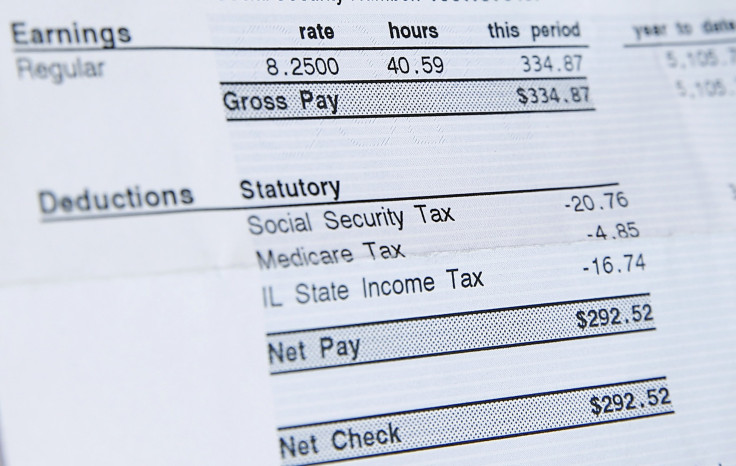With Less Savings, Social Security In Trouble, People Are Working Longer

Baby boomers seem destined to work longer than previous generations, with health and technology advances a stepping stone along that path. But as people work later into life, there could be a ripple effect for other workers, particularly young ones just starting out.
Chris Farrell, author of a book on the so-called me generation redefining retirement, wrote at MarketWatch that boomers could work into their 70s with the aid of tech advances and improved health. Bankrate's latest Financial Literacy poll found that three-quarters of U.S. workers believe work is the "new retirement," MarketWatch reported. Seventy-two percent of middle-aged workers in a Merrill Lynch/Age Wave survey said they planned to work in retirement. And a Gallup poll found that boomers, defined as people born between 1945 and 1964, are expected to push past the U.S. current average retirement age of 61 and even past the traditional age of 65.
Social Security began raising the age for full retirement benefits from 65 to 67 as a result of legislation passed to rescue the system in 1983. Those born in 1940 had to wait until they were 65 1/2 before they could retire with full benefits. People born from 1943 to 1954 have to wait until they are at least 66, and those born in 1955 or later will have to wait until they're 67.
"Whether by choice or necessity, baby boomers will remain a sizable proportion of the workforce in the years ahead," Gallup noted in the 2014 survey. The Gallup poll found that nearly 40 percent of boomers said they planned to retire at 66 or older and 10 percent said they never planned to retire. The recession in 2008-09 struck the generation hard as many took on sizable debt and drained savings. The generation had also counted heavily on Social Security benefits, which politicians often have been suggested — inaccurately — are near extinction. Estimates have suggeted the Social Security Trust Fund will run out of reserves in 2033, but the Social Security Administration believes it could still pay out about 77 percent of benefits due after that date, according to USA Today.
Farrell noted that the major concern he hears from boomers about working late into retirement is the fear of disability and wear-and-tear that would curtail productivity. But those fears may fade. Nearly 74 percent of people 64 to 74 had no government-defined disabilities and 14 percent had just one in a report from 2008-12.
Neil Mehta , a professor at the Rollins School of Public Health at Emory University, said we "are pushing to older ages the onset of disabilities," MarketWatch reported. "It’s a promising sign."
Farrell also pointed out that older low-income, less-educated people, who are more likely to engage in manual labor, struggle more frequently with disabilities and called for ways to get more of the boomer generation, especially those with health problems, involved in the workforce.
U.S. News and World Report reported last year that more older Americans are either forgoing retirement or re-entering the workforce, and that's hurting people who should be beginning a career ascent. Older folks without enough money to retire have left the younger generation waiting in line.
"What we see is people thinking they were going to retire on the appreciated value of their home [or] on their savings rate are now saying, ‘I can’t.’ They’re staying in the labor force longer, and in part that’s stalling that roll up the ladder," Lindsey Piegza, chief economist at Sterne Agee, told U.S. News and World Report. "If you’re a manager and not retiring, well, that [assistant] manager is not moving up, and we’re not seeing that roll-up effect opening up entry-level positions for some of the younger generations."
That's been frustrating for millennials who now make up about one-third of the workforce. While unemployment has dropped, many young workers have struggled in low-wage jobs. "[Millennials] continue to struggle to move up the corporate ladder while older workers delay retirement and hold tight to the reins of power," Fortune reported.
© Copyright IBTimes 2024. All rights reserved.






















